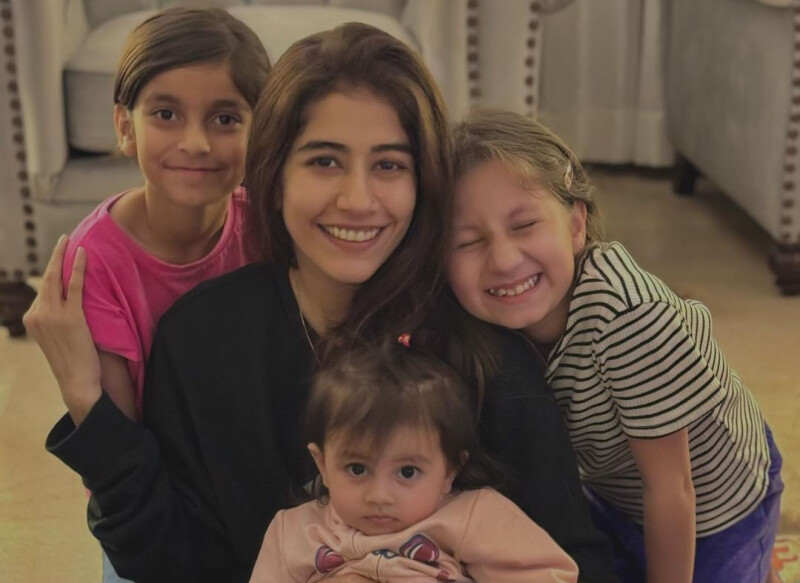When two people who are also parents part ways, the easy thing to do is be bitter and keep score. The harder thing? Putting your child’s needs and happiness first. And that’s exactly the road Syra Yousuf took.
In a recent appearance on The Motherhood Podcast with Sanam Jung, the actor got candid about what it’s like to co-parent her daughter Nooreh with her ex-husband, actor Shahroz Sabzwari — and how therapy helped her learn to separate her personal feelings as an ex from her responsibilities as a mother.
“I had to really work on it,” she shared. “Because when something goes against your nature, but it’s necessary to do, you end up growing as a person. Co-parenting has taught me how to kill my ego. So now I know that when it comes to Nooreh, I shouldn’t think of myself.”
For Yousuf, co-parenting wasn’t just a matter of showing up. It meant actively putting her daughter first, even when her own emotions said otherwise. “So many times I want to spend time with Nooreh, but she wants to spend time with her father or with her sister, which is fine. I have to accept it.”
That sister, of course, is Sabzwari’s daughter Zahra, whom he welcomed with his second wife, Sadaf Kanwal. “I always wanted Nooru to have a sibling. And before she could, her parents separated, and I still don’t have another child,” said Yousuf. “But she does from her father. And for me, that is important, that she shares a loving bond with her sister. Because she is her sister.”
The actor stressed that while adults may have their grievances, children shouldn’t have to pay the price for them. “For her to be born in the family she’s born into, have all these relatives who love her, and I come in between and say ‘I don’t think so!’ That’s not fair. This is where we as parents need to understand that even if kids are young, we can’t take unjust decisions for them.”
Yousuf was also quick to acknowledge Sabzwari’s role in making co-parenting work. “He’s been a healthy co-parenting partner. He also understands what’s good for Nooreh. Your co-parenting partner needs to be just as mentally and emotionally healthy as you.”
When asked about extending that trust to her ex-partner’s parents and other relatives, Yousuf kept it real. “If my divorce has taught me one thing, it’s that your life presents many situations, and not all of them are under your control. One needs to stop resisting what life throws at them in an attempt to keep the situation under control.”
If there’s a takeaway from Yousuf’s interview, it’s that being a good parent often means doing the hard thing — going to therapy, swallowing your pride, and allowing your child the freedom to form bonds that may sting a little at first. It’s not about erasing the past; it’s about refusing to let it define your child’s future.

